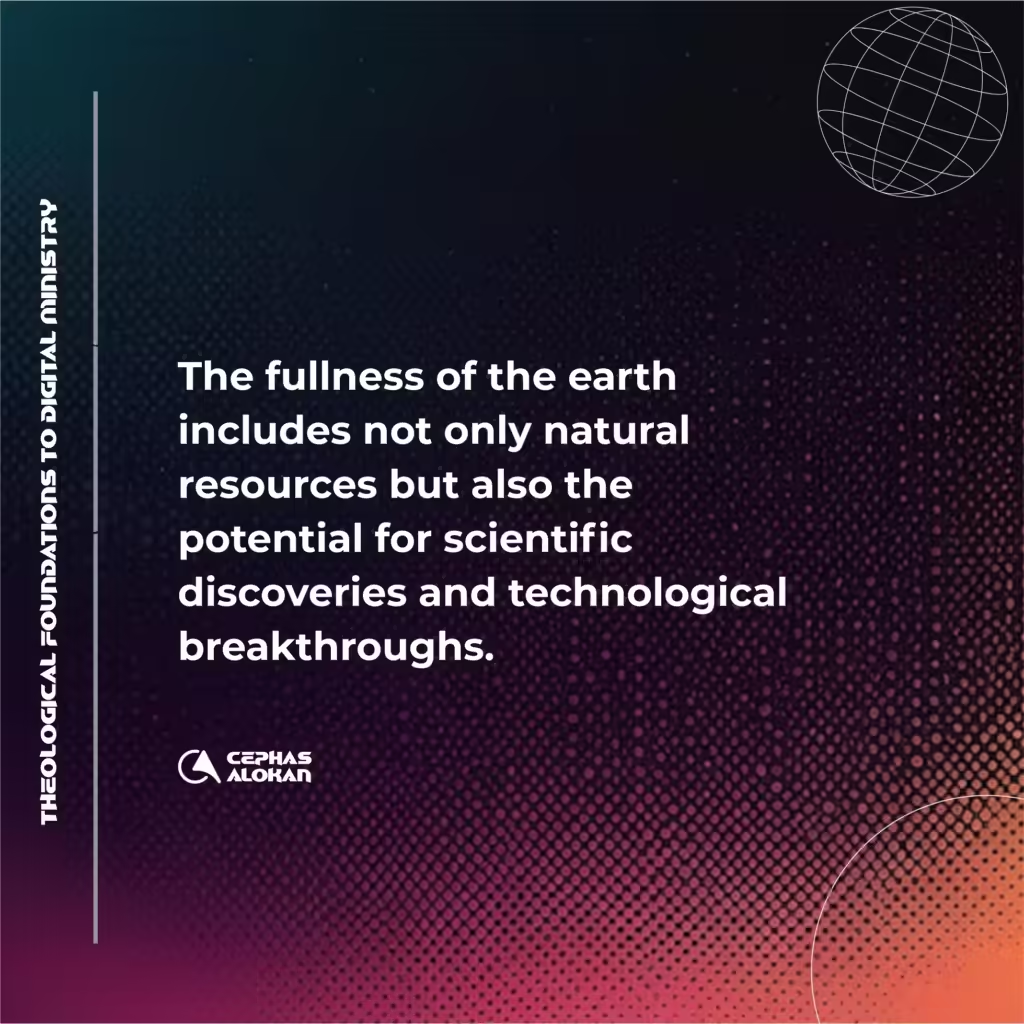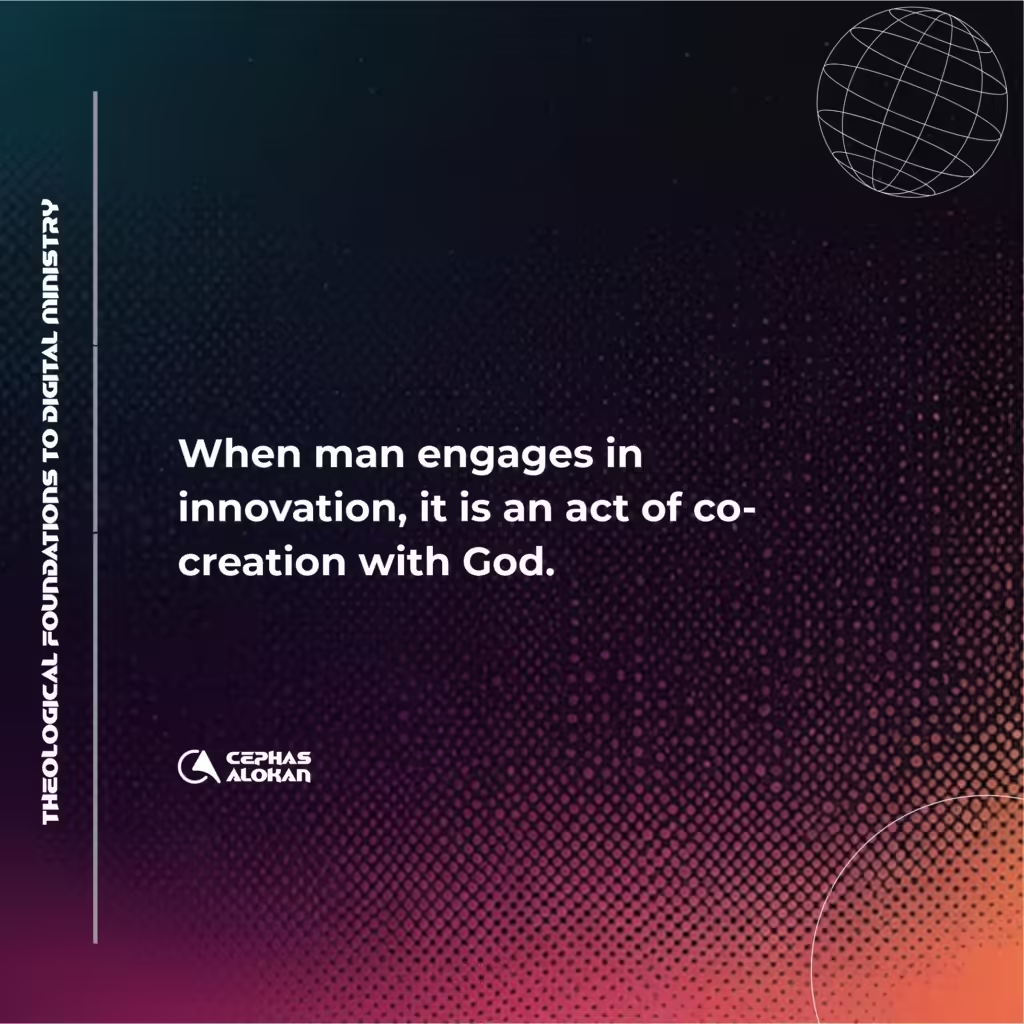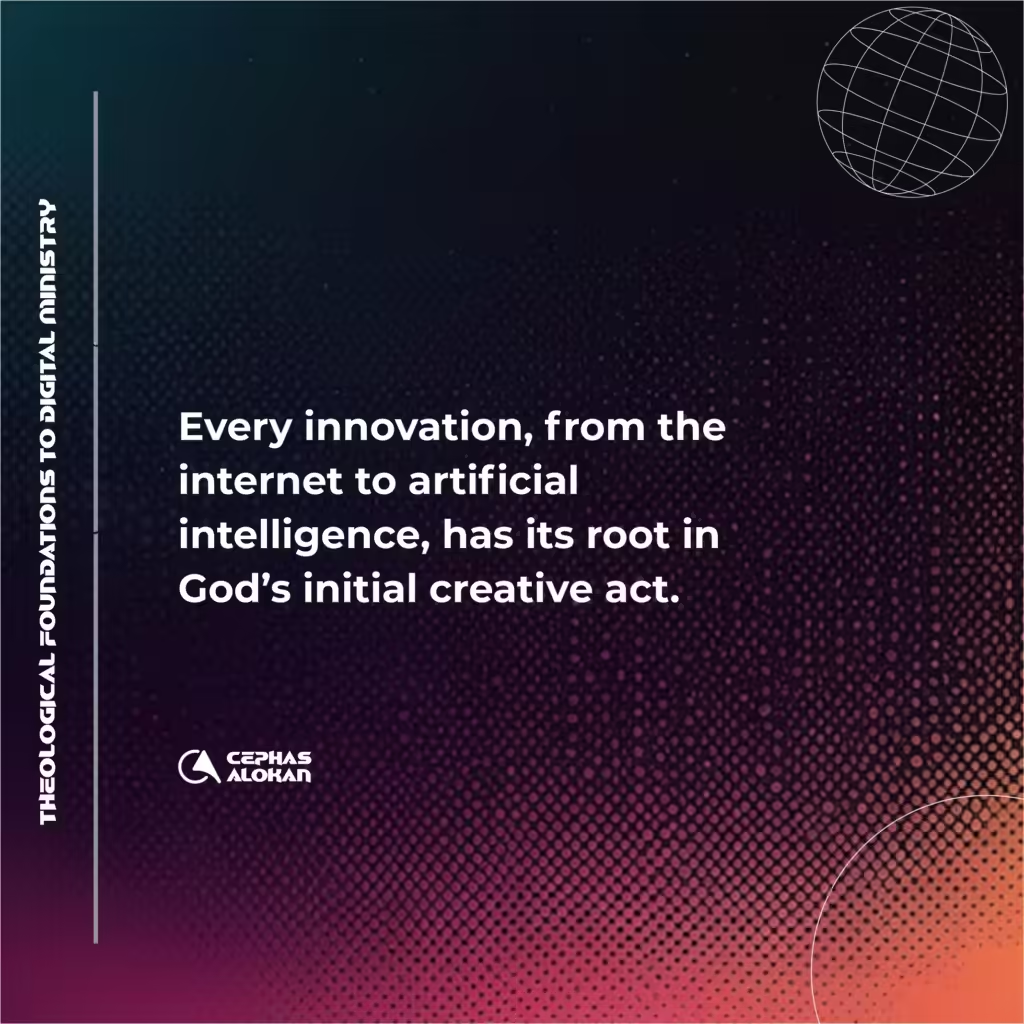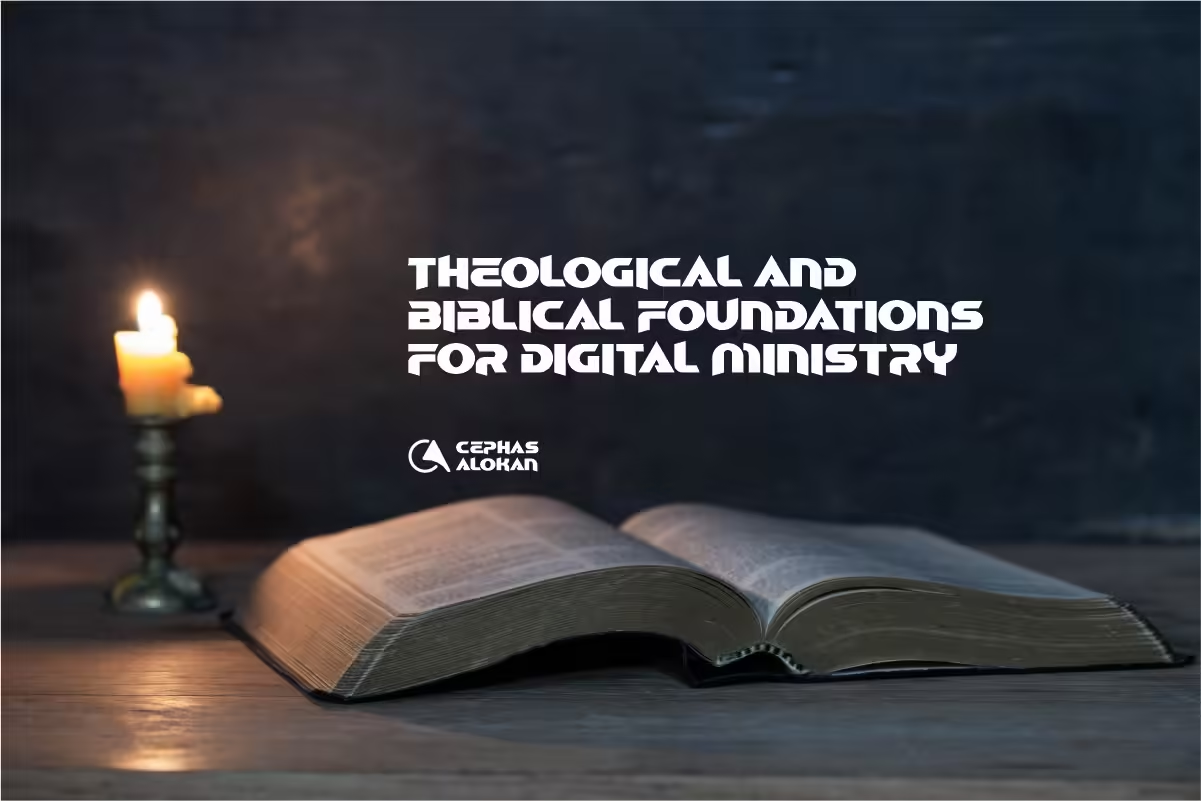The world is rapidly advancing in technology which has given birth to digital world and all its tools and platforms which in turn also give birth to the concepts of digital ministry. With this, there has been a lot of theological considerations from Christians in the body of Christ as to whether this advancement can be backed up with the scriptures and here I am trying to do justice to this question
You see innovations such as Artificial Intelligence (AI), Virtual Reality (VR), metaverse and social media are often met with mixed feelings, especially among Christians. Many wonder if these technological advancements are in alignment with God’s purpose or if they are tools meant for destruction and distraction.
As we study the Word of God on this subject matter, we must recognize the foundational truth: God is the Creator of the heavens and the earth, and all that is within it (Psalm 24:1). Every provision, every resource, and every potential innovation were embedded in His creation, waiting for man to discover, develop, and use for His glory.
The Earth and Its Fullness: God’s Gift to Mankind
The Bible declares in Psalm 24:1, “The earth is the Lord’s, and the fullness thereof; the world, and they that dwell therein.” This powerful verse reminds us that everything within creation ultimately belongs to God. The fullness mentioned here includes not only natural resources like minerals, plants, and water but also the potential for scientific discoveries, technological breakthroughs, and the vast array of digital advancements we see today.
When God created the world, He made it complete, lacking nothing. Genesis 1:31 tells us, “God saw everything that He had made, and indeed, it was very good.” Everything man would ever need to fulfill God’s purpose and have dominion over creation (Genesis 1:28) was embedded in the fabric of creation.
From the internet to artificial intelligence, every innovation has its root in God’s initial creative act. But why did God embed all these possibilities in creation? The answer lies in His purpose for man.

Man: Created in God’s Image to Continue Creation
God, in His infinite wisdom, made man in His image and likeness (Genesis 1:26). This means that man was endowed with the capacity to create, to build, and to innovate—traits that reflect God’s nature as the Creator. When God placed Adam in the Garden of Eden, He gave him the responsibility to tend, cultivate, and expand what was already created (Genesis 2:15). This principle of stewardship and dominion still applies today.
When man engages in innovation, whether it is the invention of the printing press that spread the Bible across continents or the development of AI that can assist in different ways, it is an act of co-creation with God. The mandate to “be fruitful, multiply, and have dominion” (Genesis 1:28) includes harnessing the creative potential embedded in the world to glorify God and serve humanity.
God’s Purpose in Every Provision
James 1:17 states, “Every good gift and every perfect gift is from above, coming down from the Father of lights, with whom there is no variation or shadow of turning.” God’s gifts, which include the capacity for innovation, are meant to serve His divine purposes. There is no provision that God has made that does not have a purpose.
For example, the advancement of transportation technologies like airplanes and cars fulfills the need for global evangelism (Mark 16:15), allowing the spread of the Gospel to the ends of the earth. Similarly, digital technologies enable ministries to reach millions, breaking geographical and physical barriers.
Even AI, often viewed with skepticism, can be a powerful tool for God’s Kingdom when used rightly. Imagine AI algorithms that can analyze scripture, provide linguistic insights, or even create resources for pastors and teachers to understand the Bible better. The problem is not the tool itself but how it is used. As Ecclesiastes 3:11 states, “He has made everything beautiful in its time.” When innovations are used in their proper time and for their intended purpose, they become beautiful tools for God’s glory.

The Role of Wisdom and Discernment
Although God has made provision for these technologies, we must use wisdom and discernment in applying them. Proverbs 4:7 reminds us that “Wisdom is the principal thing; therefore get wisdom: and with all thy getting get understanding.” After the fall of man in the Garden of Eden, mankind’s perception of good and evil was tainted (Genesis 3:22). This means that every innovation can be used for either good or evil, depending on whose hands it is in.
AI and social media can be used to spread the message of the Gospel, disciple nations, and connect believers globally. Yet, in the hands of those who oppose God’s will, they can become tools of misinformation, distraction, and destruction. This is why the Apostle Paul admonished believers to be vigilant and “test all things; hold fast what is good” (1 Thessalonians 5:21).
The Devil’s Lack of Creative Power
One key theological truth we must remember is that the devil does not have the power to create. As a created being, he lacks the ability to originate anything. He can only pervert what God has created. Jesus said in John 8:44 that Satan “is a liar and the father of lies.” He manipulates, distorts, and twists what is already in existence to achieve his agenda.
Just as the devil manipulated the truth in the Garden of Eden, he tries to manipulate the truth about technology and innovation today. He wants Christians to believe that certain advancements are inherently evil and should be rejected altogether, when in fact, these are provisions God made available for His children to use for good.
The Mandate of Dominion and Fruitfulness
When God created man, He blessed him and said, “Be fruitful and multiply; fill the earth and subdue it; have dominion” (Genesis 1:28). This mandate is not just about reproduction but about filling the earth with God’s wisdom, knowledge, and glory. We are called to take the raw materials of creation and transform them into something that honors God and benefits humanity.
Technological innovations, when used under the guidance of the Holy Spirit, can extend our reach, enhance our worship, and help fulfill the Great Commission (Matthew 28:19-20). Consider how digital evangelism has led to millions encountering the Gospel, or how online platforms have facilitated prayer meetings and Bible studies that would have been impossible a few decades ago.
The Need for God’s Children to Step In
In John 14:12, Jesus said, “He who believes in Me, the works that I do he will do also; and greater works than these he will do, because I go to My Father.” This verse is a reminder that we are called to greater works. But to achieve these “greater works,” we must leverage every tool and resource God has placed at our disposal.
If Christians shy away from engaging with technological innovations, we leave a vacuum that the enemy can fill. It is not enough to reject these tools; we must redeem them for God’s glory. We are the light of the world and the salt of the earth (Matthew 5:13-16). Our presence, our input, and our guidance are needed in every sphere of society, including the digital world.

Conclusion: Discerning the Times and Using Innovations for God’s Glory
The challenge before us is not whether to engage with new technologies but how to engage with them in a way that aligns with God’s Word. In a world full of innovations, we need to adopt the mindset of Paul, who became “all things to all men” so that he might save some (1 Corinthians 9:22). Let us use the internet, AI, VR, metaverse, social media, and every other tool as a means to fulfill the mandate of dominion and fruitfulness.
As children of God, we must understand that every good and perfect gift, including the capacity for innovation, is from above (James 1:17). Our responsibility is to discern, pray, and engage these tools with wisdom and purpose, ensuring that all we do brings glory to our Creator and furthers His Kingdom on earth.






